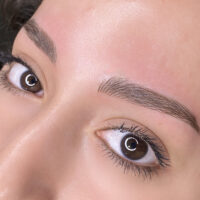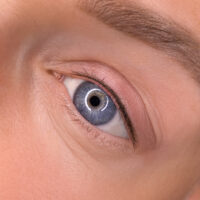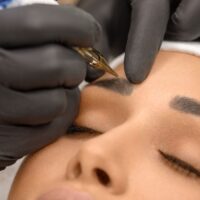PMU PRE- AND AFTERCARE
In order to achieve the best and safest results with semi-permanent make-up, we have strict pre- and aftercare instructions. These instructions have been approved by the government and the Municipal Health Service (GGD).
It is important that you follow these instructions carefully.
RISKS OF SEMI-PERMANENT MAKE-UP
Semi-permanent make-up comes with inherent risks, necessitating proper precautions. Prior to undergoing the treatment, it is crucial to ensure you are well-rested and have had a sufficient meal. You must also inform the PMU expert about any medication usage, skin issues, allergies, epilepsy, or hypersensitivity reactions.
Our PMU studio holds a Municipal Health Service (GGD) license, indicating that we strictly adhere to government hygiene guidelines. This certification is exclusively granted to studios and clinics that prioritize safety and maintain high standards of hygiene.
WHEN SHOULDN’T YOU HAVE SEMI-PERMANENT MAKEUP APPLIED?
There are several instances when you should refrain from getting semi-permanent makeup applied. Avoid the procedure if:
• You have undergone plastic surgery or radiation therapy in the past year in the area where you want the makeup.
• The area has scars that are less than a year old.
• The area has had semi-permanent makeup applied less than six weeks ago.
• The area has had a tattoo or semi-permanent makeup lasered off less than three months ago, or if the laser wound hasn’t healed yet.
• The skin is irritated, with bumps, dark moles, or swelling.
• You are under the influence of alcohol or drugs.
• You are pregnant.
In these situations, it is best to wait until the appropriate time or consult with a professional to determine the suitability of the procedure. Safety and proper healing are essential for successful semi-permanent makeup application.
We strongly advise against getting semi-permanent make-up applied if you suffer from any of the following conditions:
• Diabetes
• Hemophilia
• Chronic skin disease
• Allergies to pigments or other materials used in PMU
• Immune disorders
• Cardiovascular disorders
If you have any of these conditions or if you are currently taking anticoagulants or antibiotics, it is essential to discuss the possibilities of getting PMU with your doctor before proceeding.
For further information regarding the guidelines for semi-permanent make-up, please refer to the website “Safety Guidelines for Tattoos and Piercings” (available only in Dutch).
During a PMU treatment you can expect the following strict hygienic procedures to be followed:
Cleaning and Disinfection: Before applying PMU, the skin will be thoroughly cleaned, disinfected, and, if needed, shaved using a new disposable razor. This step ensures a clean and suitable canvas for the procedure.
Sterile Needles and Ink: Only sterile needles and ink, individually packaged, are used for each client. This ensures that there is no risk of contamination, and everything is hygienically handled.
Small Ink Cups: The ink is provided in small, single-use ink cups. This prevents cross-contamination and maintains a high level of hygiene throughout the procedure.
Clean Tissues: Clean tissues are used to wipe and clean the skin during the PMU application. This avoids any potential transfer of impurities or germs.
Gloves Usage: The therapist wears gloves throughout the PMU application process. If they touch anything other than the pen used to apply the pigment, a tissue, or your skin, they promptly replace the gloves. This practice ensures the utmost cleanliness and safety.
Aftercare: The clinic will provide guidance on how to care for your semi-permanent make-up after the procedure. Proper aftercare is essential for optimal healing and the longevity of the PMU.


Sunday & Monday: Close
Tuesday to Friday: 9:00 to 19:00
Saturday: 9:00 to 17:00



